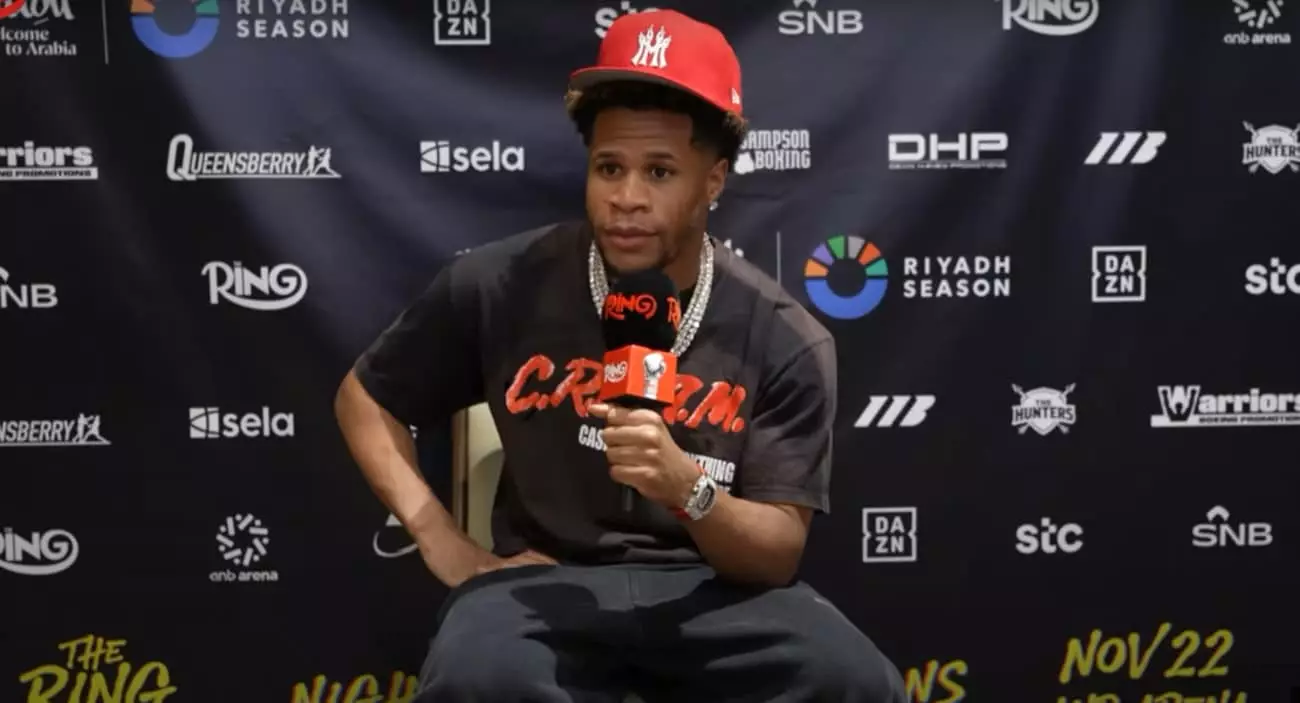Devin Haney’s recent declaration that he will demonstrate his superiority over WBO welterweight champion Brian Norman Jr. reveals a fighter eager to assert dominance in a highly competitive division. His words are filled with bravado, emphasizing that Norman Jr. is relatively inexperienced at the highest level of boxing, and that Haney’s experience will be the deciding factor. While confidence is essential in combat sports, Haney’s statements border on arrogance, risking alienation and underestimating his opponent. He paints Norman Jr. as a debutante in the elite ranks, yet neglects to acknowledge that boxing’s upper echelons are filled with fighters who have faced the best and still fallen short.
Haney’s assertion that he is “levels above” Norman Jr. attempts to elevate his own standing by diminishing his opponent’s credentials. But true greatness in boxing isn’t simply about perceptions; it’s about consistently beating top-tier talent. Haney’s brash claims, while galvanizing for fans, lack the nuance needed to understand the landscape of modern boxing’s competitive divisions.
Assessing Haney’s Claims: Skill, Experience, and the Reality of the Division
One cannot ignore that Haney’s resume, while impressive on paper, contains significant caveats. Critics point out that many of his marquee wins—such as over Jorge Linares and Joseph Diaz Jr.—come from fights in which the opposition was past their prime or below their peak. His victory over Vasily Lomachenko remains contentious, with many fans and analysts believing Lomachenko was robbed or that Haney merely benefited from a favorable decision. These factors cast doubt on Haney’s proclaimed dominance.
Furthermore, Haney’s assertion that he has fought the best fighters is questionable. The recent crop of talented 147-pound contenders, including Ryan Garcia, Shakhram Giyasov, and Rolly Romero, represent a new generation of fighters who are eager to make their mark. Haney’s experience at the top is not unassailable, especially considering that some of his biggest wins were against opponents outside their prime or with less formidable resumes.
His claim of being “levels above” Norman Jr. may also oversimplify the complexities of boxing at this level. In the ring, physical preparedness, strategic adaptability, and mental resilience often outweigh mere experience. Norman Jr., claiming to be the best in the division, undoubtedly has his own ambitions and skills that could challenge Haney’s assumptions of superiority.
The Reality of the Fight and the Judging Landscape
Set in Riyadh, the bout’s location adds a layer of unpredictability—not only in the fighters’ performances but also in how the judges might score. Recent boxing history demonstrates that in locations demanding offensive action, defensive tactics and ring control can often be overlooked. If Haney attempts to stall or box cautiously, especially given his checkered history of engaging opponents with entertainment value, he risks losing favor with the judges. Norman Jr., on the other hand, could capitalize on this, especially if he consistently presses the action and showcases the power and skill to threaten Haney.
Moreover, an important factor that cannot be ignored is Haney’s need to prove himself against a younger, eager opponent. While he claims this is his “first time” fighting someone younger, that won’t be enough to guarantee victory. If Haney’s approach remains a cautious, cautious clash similar to his previous performances—like that uninspired outing against Ramirez—judges might find it difficult to award him the decision, particularly in a judging environment that favors entertainment and engagement.
Finally, the question remains: Is Haney truly the best? The answer isn’t solely rooted in his ability to talk confidently about superiority but in his willingness to take on all the formidable fighters who stand between him and that ultimate accolade. Until he does so convincingly, his claims sound more like bravado than proof of actual greatness.

